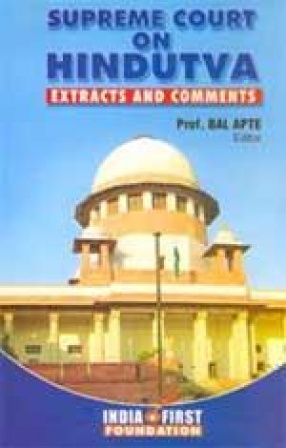Indira Gandhi: Life and Legacy
Synopsis
This essay is aimed at a survey of the socio-psychological background and personality pattern of Mrs. Indira Gandhi and the political effects it generated affecting the political culture of India, not only during her rule, but more importantly how the legacy left by her has altered India's political norms. For fifteen years she was the Prime Minister. Fifteen years is a long time. She is remembered by some as personable, disarmingly charming, friendly, benevolent, gracious, kind, attentive to small graces, and polite to a fault. And, by others, as ruthless, impolite, ungracious, scheming, ungrateful, maneuvering, undependable, and having no respect for truth. And both are right in their own ways. Mrs. Gandhi was in the profession of politics in which self-interest, not rectitude, governs. She never had the greatness of Mahatma Gandhi or the vision of her father. Paradoxical as it may sound, she was not a product of the freedom struggle, which gave its operators some streak of idealism. Her approach to power and politics made her anxious to continue in it. Because of her lack of greatness and vision, her moves were mostly ad hoc and myopic. She practised the art of keeping the nation and her colleagues on tenterhooks. As she gained in power she made her colleagues jump like cats on a hot in roof. She knew and practised the art of turning the people's wrath to a real or fancied danger to the nation, and if there was none, she knew how to create one. She improvised seeming situations of national crises, which always creates an artificial sense of unity amongst the people resulting, however temporarily, the Governments' lapses and failings getting out of focus with the people. But with the death of a public person, their personal traits get buried in the hearts and memories of friends and adversaries to be remembered with tenderness or wrath. Individual acts of grace or inelegance generally cease to have impersonal relevance after the exit of the possessor. Legacy, on the other hand, is what passes on to the successors and affects their lives. The good or bad Mrs. Gandhi did to individuals, or even the good or bad decisions she took even as an administrator, belong to the ragbag of history. What we are concerned with is the study of changes she had brought about, which have influenced our political ethos and structure, even after her death. Surveying her career as the Prime Minister for 15 years, it is unfortunate that she institutionalised corruption, debased the presidency, emasculated the collective leadership of the party, and legitimised the cult of blood in politics. Hard words. Bitter truths. But truths, nevertheless. The worst and the most unforgivable sin she committed against the polity is the legitimisation of the cult of blood in politics. She associated, first, her younger son, Sanjay, in politics, and encouraged, or winked at, cabinet ministers, chief ministers, party bosses, aspirants for political office, top bureaucrats, to degenerate themselves before him as his boot-lickers. Unblushingly, she defended him in parliament and outside with anger and wrath. She patted the backs of only those who chose to wipe her son's nose rewarding them with royal smiles and favours. Sanjay became the most feared and most powerful extra-constitutional authority in the country. When he would visit a state capital, public holidays would be declared and schools closed. His visits, much like the visits of the Viceroy of the hated days, carried an aura and a scent of regality. On his sudden death in an air crash, her elder son, Rajiv, reported to have hated politics earlier, was brought on stage lest the coparcenaries of power passes into hands outside the family. His introduction in politics was surrounded with the same fanfare. The old story was retold: only the hero was replaced. Individuals, claiming to rule through hereditary divine rights, ruled India, as the rest of the world, till French revolution. We had family rules under Mauryas, Guptas, Suris, Mughals, Pathans et al. appropriately, the period after the death of Nehru may earn the label of "India under Nehrus!
Read more
22.50
20.25
$
25.00 $
Free delivery Wolrdwidе in 10-18 days
Ships in 1-2 days from New Delhi
Membership for 1 Year $35.00
Get it now and save 10%
Get it now and save 10%
BECOME A MEMBER







Bibliographic information